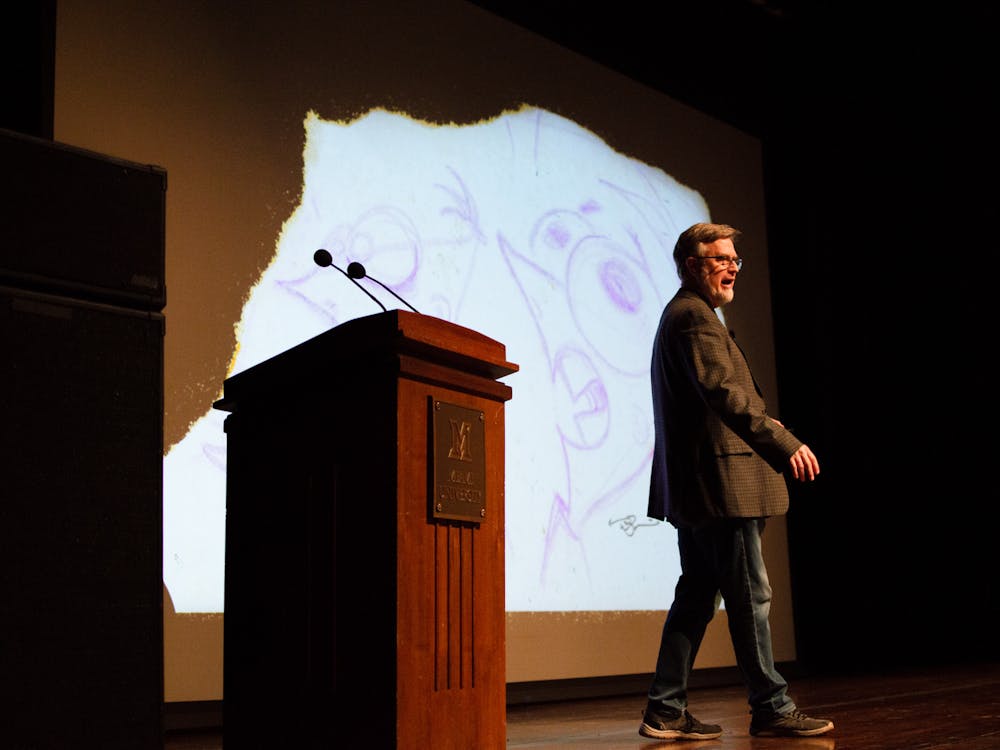By Emily O'Connor, For The Miami Student
After serving in the U.S. Marines, Grant Gray decided this fall to join the 300 other Miami students who currently take advantage of the G.I. Bill.
Gray started his career in the Marines in January 2011 at the Marine Corps Recruit Depot on Parris Island. From 2013 to 2014 he was deployed to Afghanistan. Gray was honorably discharged this year.
The G.I. Bill has been in existence since 1944 and has changed several times since it was first enacted. The Post-9/11 G.I. Bill was put into law in 2008 and greatly expanded the benefits.
This bill provides up to 36 months of education benefits, generally payable for 15 years following a veteran's release from active duty. Benefits include a housing allowance, an annual stipend for books and supplies and a one-time payment of $500 for those relocating from rural areas.
Of the 18,456 undergraduates at Miami, 310 of them, less than 2 percent, are using veteran educational benefits including the G.I. Bill.
Miami alumnus Rob Horn ('15) served a little over two years in the U.S. Air Force before retiring due to an injury at the age of 20.
"The G.I. Bill provided free college," said Horn. "I'd be an idiot not to use it."
According to Kathy Ramsey, assistant director of One Stop Student Services, the students who choose to use the bill are very diverse.
"Some of the students are using benefits they earned while serving and others are using benefits transferred to them by a parent," said Ramsey.
Although those who use the bill greatly benefit financially, attending college as a veteran presents its own unique challenges.
"Starting college later than most freshman is definitely an experience," said Gray. "When I tell people that I am 23 and a freshman they almost look down upon me until I tell them that I served in the Marines."
Enjoy what you're reading?
Signup for our newsletter
Unlike most college students, Gray said he's had his fair share of partying and isn't interested in going out during the week.
"In my opinion, it gives me a huge advantage because I have my priorities straight and am here for an education and not to party," said Gray.
Horn grew up in Eaton, Ohio and felt Miami made the most sense for him. He completed his first two years at a regional campus and then transferred to Oxford to finish his degree.
Horn said he never felt out of place being an older college freshman. He said the regional campus is different than the Oxford campus because there are many older students in the classes.
"I definitely wasn't always the oldest one," said Horn.
When Horn transferred to the Oxford campus, he said things changed. Rather than being among many older students, he was now one of the oldest in the class.
Horn said he never felt the age difference was a bad thing. Many Miami students were accepting of him, and some didn't even notice that he was older.
"There was definitely an age difference," said Horn. "But I never felt like it was an issue of annoyance."
Despite the hardships some face, Gray said the student veterans at the Oxford campus are very close. He gives credit to the Marines for making him into the person he is today.
"I love my country and the Marines," said Gray. "The pay on the enlisted side is not worth it to make it your career. I didn't sign up for the money, but I signed up to serve my country for four years."




